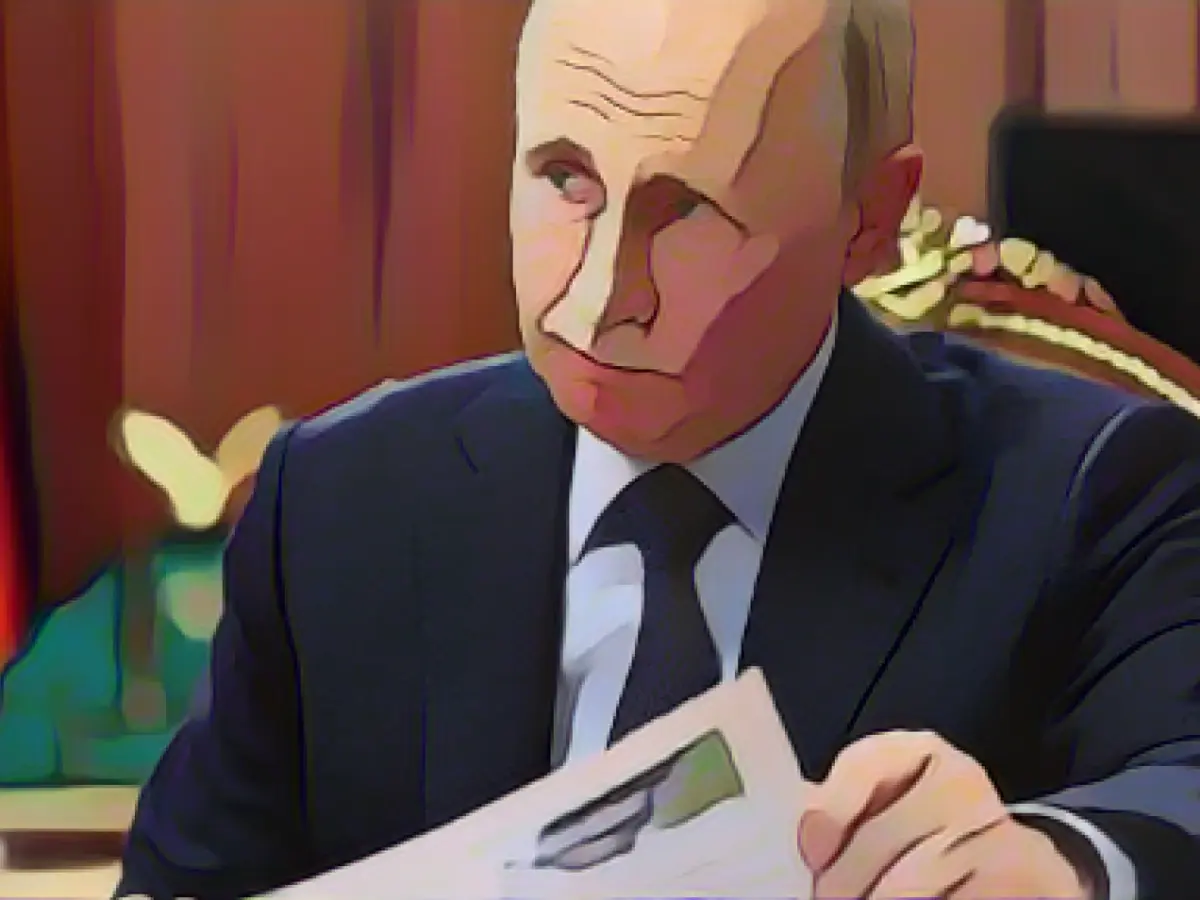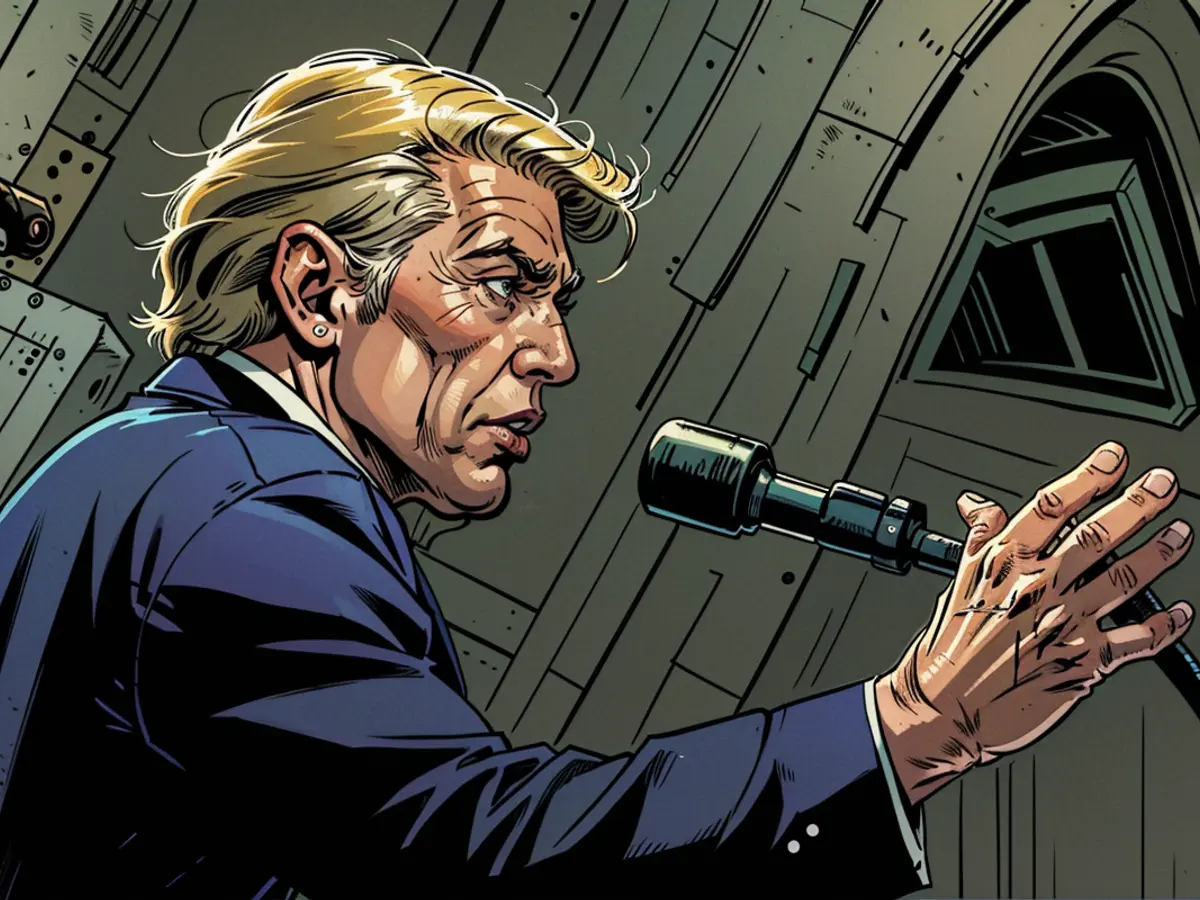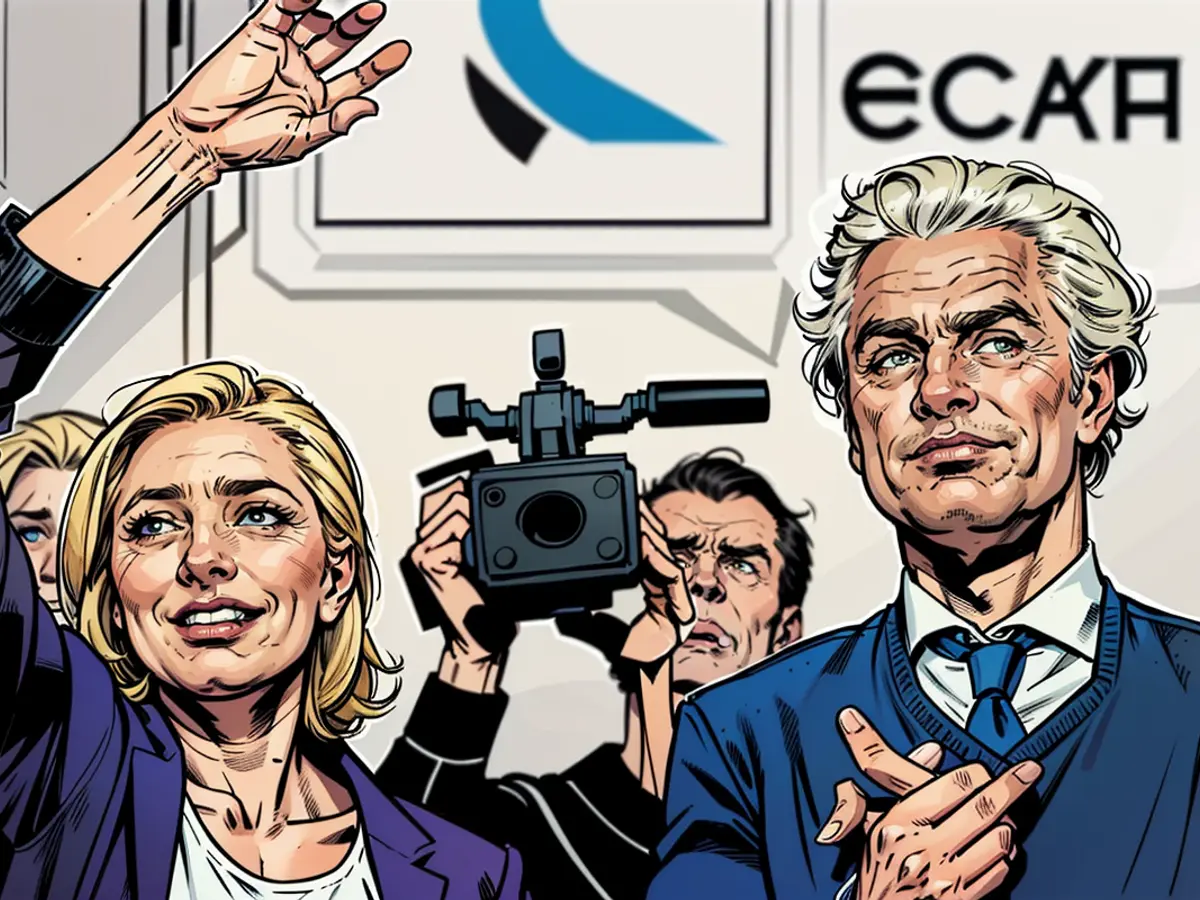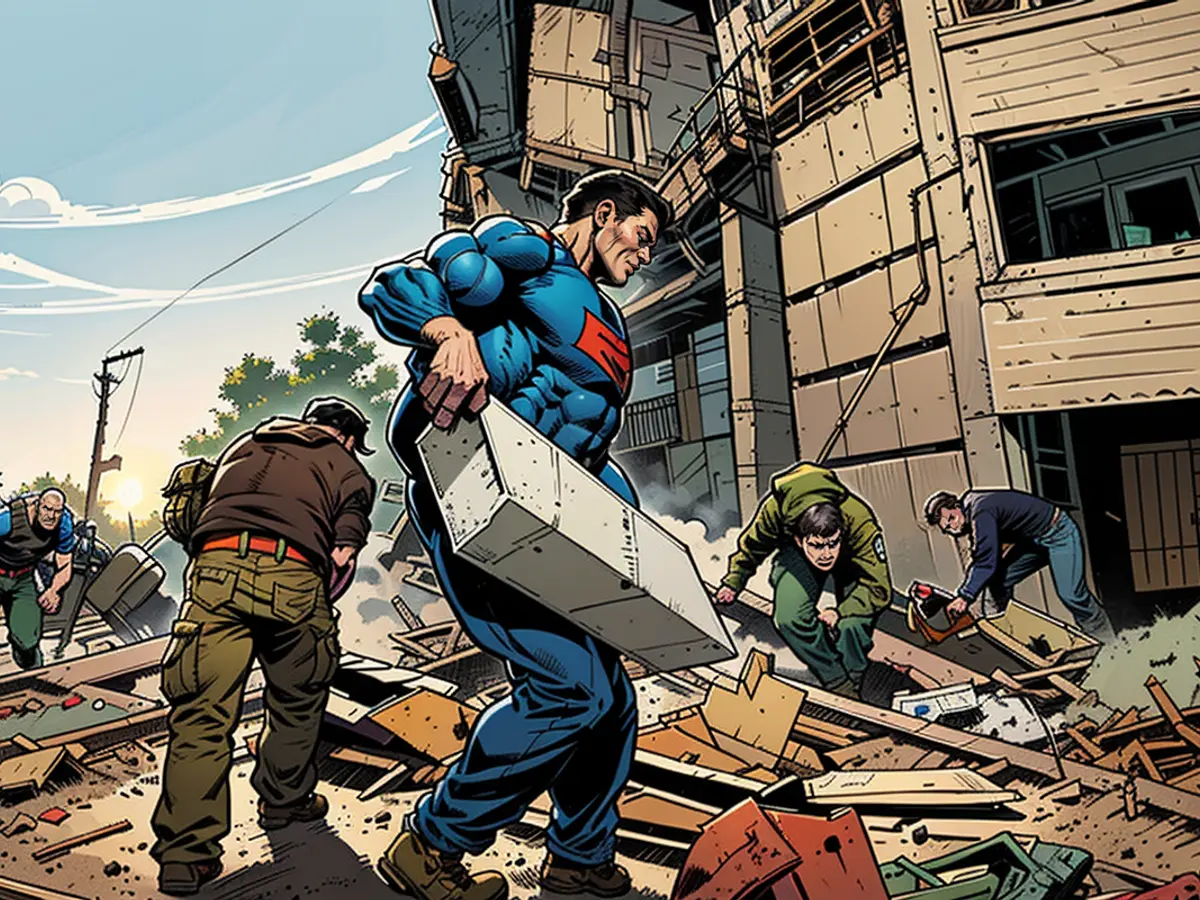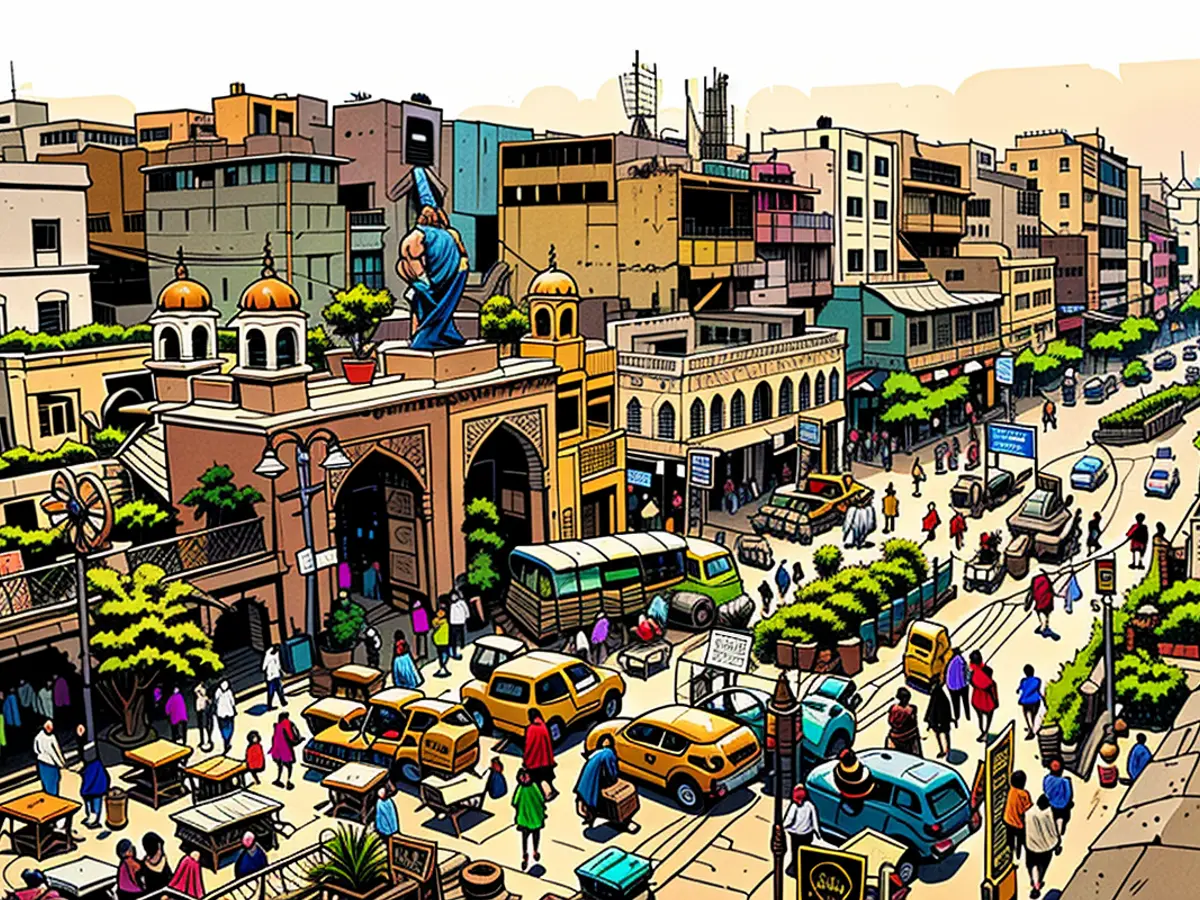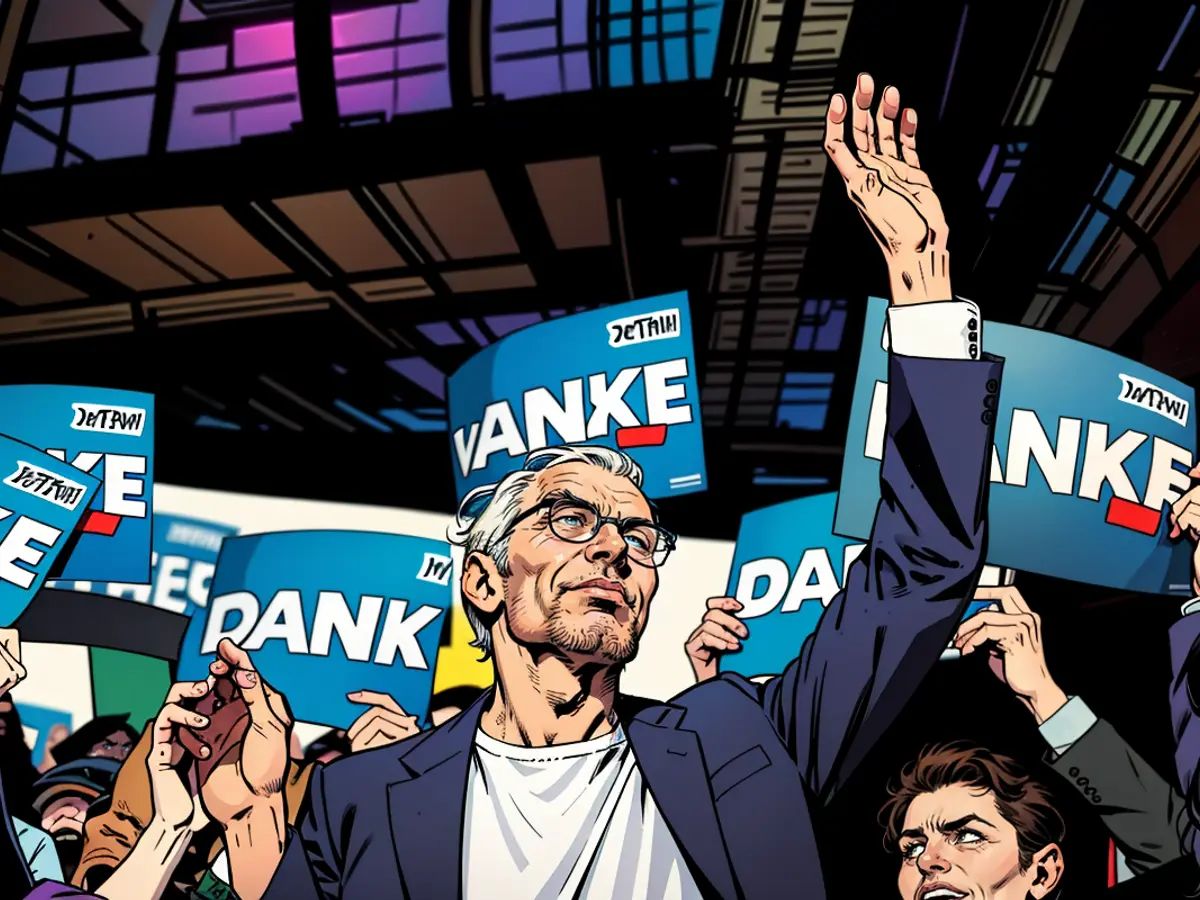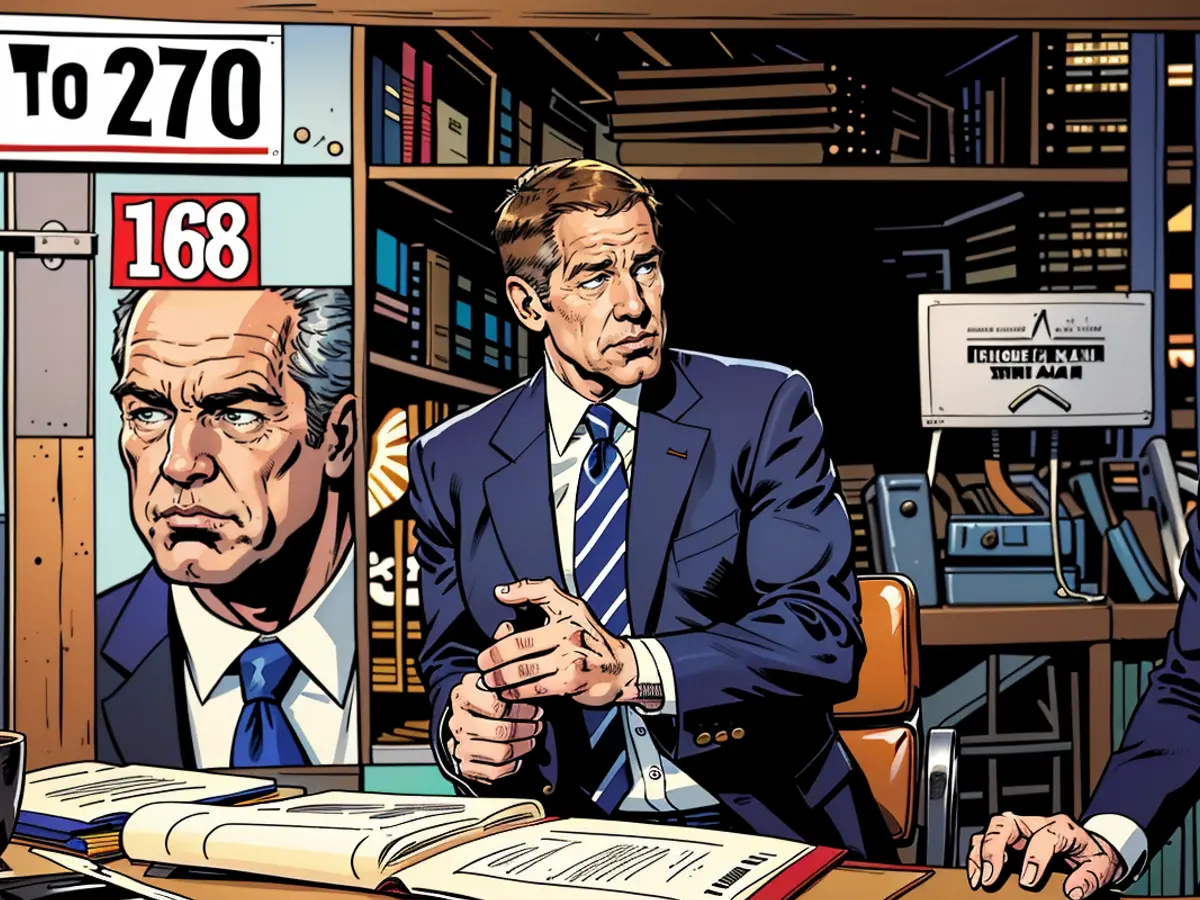Russian war of aggression - Elections and a new world order - Putin wants to cement his power
After almost two years of his bloody invasion of Ukraine, the visible tension of the first days of the war has fallen away from Vladimir Putin. The Kremlin leader remains silent about the tens of thousands of people killed in his campaign.
And the 71-year-old has long since reinterpreted his invasion of the neighboring country as a war against the West and NATO. With his "fight against the external enemy", he has won many Russians over to his side. Putin, who has been in power for almost a quarter of a century, wants to make 2024 a year of triumph for himself.
"Peace will come when we have achieved our goals," Putin said confidently at his big annual press conference in December. A victory for him would be, for example, Ukraine renouncing its NATO membership. After many defeats in the first year of the war, Putin now sees the initiative back in the hands of his army. Moscow reports conquests in the Donbass - and rejoices that Western aid is continuing to crumble and Ukraine is running out of soldiers.
The West's plans to inflict a strategic defeat on Russia or isolate the country on the world stage have failed, Putin said recently. The Kremlin leader, who critics accuse of pursuing an increasingly totalitarian course, is confidently promoting a new world order, which he believes is already emerging.
Sanctions could not stop Putin's war economy
Putin wants to achieve a new multipolar world - without the supremacy of the USA. His own freedom to travel is limited because the International Criminal Court has issued an arrest warrant against him for war crimes in Ukraine. But the Kremlin leader is seen by many people in the country as the builder of a new, strong Russia that is self-sufficient and sometimes threatens to use its nuclear weapons.
Even Western experts concede that Moscow has so far withstood the pressure of sanctions imposed by the EU, the USA and other countries better than many expected. The punitive measures were actually intended to deprive Putin of the economic basis for the invasion. However, the raw materials superpower is keeping its war economy going with the income from the oil and gas business with China and India. Quite a few countries are also helping Russia to circumvent sanctions and get coveted goods into the country after all.
Russia can point to economic growth of over three percent this year. Even if economists criticize that these are only artificial results of a high-speed war economy that is burning state assets - Putin can announce positive news. However, according to experts, the growth is not healthy. In addition, many Western companies have left the country.
Expert sees "fragile stability"
Andrei Kolesnikov, a Russian expert from the US think tank Carnegie, sees "fragile stability" in the country overall. Low unemployment contrasts with an extreme shortage of skilled workers - many men have to fight in the war or have fled abroad with their families for fear of being sent to the front. Wage and pension increases often evaporated due to the rise in the cost of living. Because many coveted goods have to be bought for hard Western currency, the value of the rouble is also persistently weak. Purchasing power is constantly falling.
Many Russians complain of poverty, fear and a lack of prospects. Despite everything, surveys show that most people trust Putin in particular to solve the many problems. The president had the constitution amended in 2020 specifically so that he could continue to run in elections. His term of office is six years. He could run again in 2030 - and then rule until 2036.
As the former head of the secret service, Putin is considered a master of glorification. He emphasizes that Russia is now strengthening its defensive power and thus its own sovereignty - after the "special military operation", as Putin usually calls his war, has exposed weaknesses.
War and fear as a means of maintaining power
Putin's approval ratings are currently significantly higher than before the war, when many people complained of stagnation. "The basic motive for launching the special operation was to maintain power," says Kolesnikov. According to him, the Kremlin leader could have won the election with the system of fear and authoritarianism even without the invasion.
For the presidential election on March 17, there is no one in sight who could pose a threat to the Kremlin leader. The political field has been cleared. Genuine opponents are not even allowed to go to the polls. No example shows this as well as the Kremlin critic Alexei Navalny. Putin has had his opponent imprisoned in the "Polar Wolf" prison camp in northern Siberia - more than 2,000 kilometers from the center of power - which is notorious for its harsh prison conditions.
Nevertheless, Navalny, who in 2020 blamed Putin for an assassination attempt on him using the chemical agent Novichok, refuses to give up. He is calling for a fight against the power apparatus, which is characterized by mafia-like and corrupt structures and is based on repression. Navalny's team, which expects massive electoral fraud, has launched the "Russia without Putin" campaign. Voters are called upon to vote for any candidate - just not for Putin.
Election without competition - as a referendum for Putin
The chances of success for this protest vote are likely to be slim. For one thing, some candidates are already openly swearing allegiance to Putin. Secondly, to the horror of many pro-Western Russians, Grigori Yavlinsky, founder of the liberal opposition party Yabloko, has decided not to run this time. He is one of the few prominent opposition figures who are still free, openly criticizing Putin's war and calling for a ceasefire.
"There's no point in being an extra in this circus," says Jawlinski about his decision. "There is a system of fear, people are already afraid before the election to reveal their personal details just to collect signatures of support. This is not an election, but a referendum on Putin."
There is also war-weariness in Russia. The independent opinion research institute Levada has recorded a growing desire for peace negotiations in surveys. However, this is not in sight. Instead, there is widespread fear that Putin - spurred on by a high result in the vote - will significantly up the ante in his war against Ukraine once again - even with an unpopular further mobilization.
Kremlin expects Kiev to capitulate in the war
The Kremlin has repeatedly made it clear that negotiations with Ukraine are only possible on Russia's terms. This would result in Kiev's capitulation. Putin openly admits that he is concerned with the collection of historical Russian territories - the protection of the Russian language and culture. Speaking to military officers at the end of the year, he also emphasized that he had no interest in the west of Ukraine, the former Polish territories that Soviet dictator Josef Stalin once awarded to Kiev after the Second World War.
However, Putin has recently repeatedly said that the Black Sea metropolis of Odessa in southern Ukraine, for example, is a "Russian city". Putin said that Russia was only interested in "its" former territories there. Russia, Putin explained, had long been the guarantor of Ukraine's territorial integrity. However, due to its aspirations to join NATO and the anti-Russian nationalism of Kiev's leadership, this was over once and for all.
After a phase of weakness and defeats, Putin with new strength
At the turn of the year, the assessments of Putin's long-term rule piled up - in August next year, it will be 25 years since he took power as head of government under the weakened President Boris Yeltsin and shortly afterwards took over his post in the Kremlin himself. The predominant tenor is that, after a phase of weakness due to the military defeats, Putin has now regained his composure and found new strength.
After the failed uprising of the Wagner private army against Moscow's military leadership and the fatal plane crash of mercenary chief Yevgeny Prigozhin, who had fallen out of favor in the Kremlin, calm has largely returned to the country. Political scientist Tatyana Stanovaya noted that Putin did not make any big promises or hand out any election gifts at his annual press conference this time. "The Russian leader does not feel he has to fight for the sympathy of the people - the people are on his side as it is," she said.
Others speak of the Russians having "learned to be followers" during the Soviet era under communism, from which Putin still benefits today. A commentator for the US newspaper "Wall Street Journal", whose correspondent Evan Gershkovich is in custody in Russia for alleged espionage, recently even crowned Putin the "geopolitical winner" of the year "without joy". Putin had strengthened his position with the "cruel advantage of strategic perseverance" and autocratic rule.
Read also:
- Year of climate records: extreme is the new normal
- Precautionary arrests show Islamist terror threat
- UN vote urges Israel to ceasefire
- SPD rules out budget resolution before the end of the year
- Despite the tens of thousands of lives lost in the war, the tension of the first days has dissipated from Vladimir Putin.
- Putin has reinterpreted his invasion of Ukraine as a war against the West and NATO, winning over many Russians with his "fight against the external enemy."
- In his annual press conference, Putin expressed confidence that peace would come once Russia achieves its goals, such as Ukraine renouncing its NATO membership.
- The West's plans to inflict a strategic defeat on Russia or isolate the country on the world stage have failed, according to Putin.
- Putin is promoting a new world order, one he believes is already emerging, free from the supremacy of the USA.
- The International Criminal Court has issued an arrest warrant against Putin for war crimes in Ukraine, but he is still seen as the builder of a new, strong Russia.
- Moscow has so far withstood the pressure of sanctions imposed by the EU, USA, and other countries better than many expected.
- The income from oil and gas sales to China and India has helped Russia keep its war economy going despite the sanctions.
- Economists criticize Russia's economic growth of over three percent this year as artificial and not healthy, but Putin can still announce positive news.
- According to Andrei Kolesnikov, a Russian expert from the Carnegie think tank, Russia has fragile stability, with low unemployment but an extreme shortage of skilled workers.
- Putin amended the constitution in 2020 to allow him to run in elections indefinitely, with his term of office now six years, extendable to 2036.
- Alexei Navalny, Putin's critic, has been imprisoned in Siberia for his opposition to Putin, but he refuses to give up and continues to call for a fight against the power apparatus.
- Grigori Yavlinsky, one of the few prominent opposition figures still free, has decided not to run in the election, calling it a "circus" without competition and a referendum for Putin.
Source: www.stern.de
